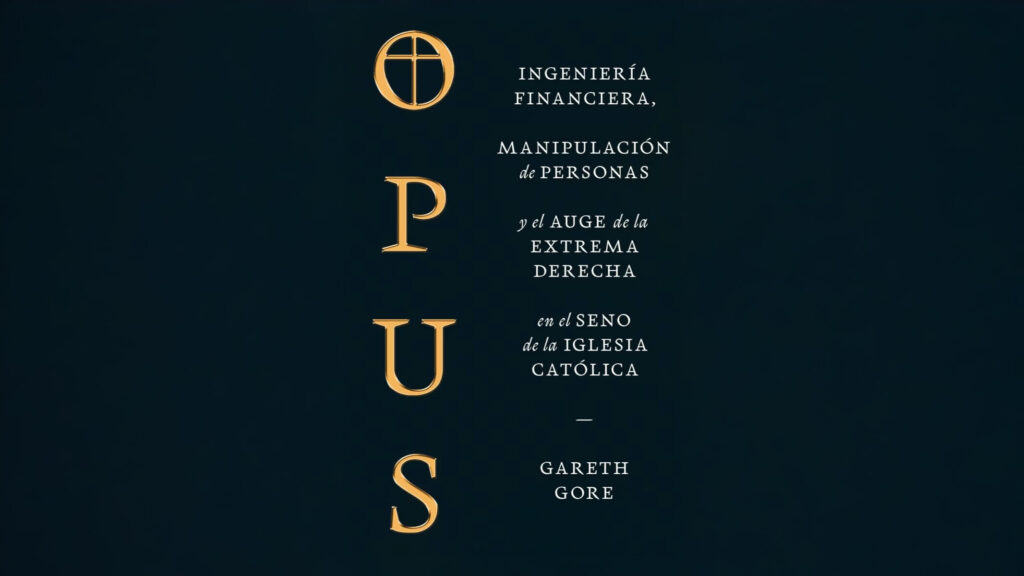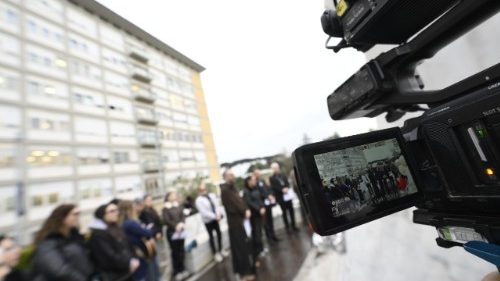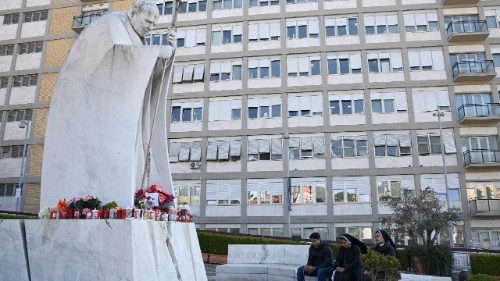The case of the book “Opus” or how to misinform about the Church
Answers to clarify misunderstandings and offer a balanced view

The recent book Opus, by journalist Gareth Gore, published in 2024, has revived controversial claims about Opus Dei, a personal prelature of the Catholic Church. Although the author claims that his work is backed by exhaustive research, Opus Dei has made public a 100-page document where it makes available to interested readers the serious errors and misrepresentations that the book contains, which reveal a markedly biased approach to this ecclesial reality.
The debate generated by Opus highlights the need for an objective and balanced analysis when addressing issues related to religious institutions. Beyond the controversies, it is essential to distinguish between verifiable facts and speculative interpretations. In this context, the Opus Dei response is presented as an invitation to deepen our knowledge of its mission and charism, providing context and data, far from prejudices and misinformation.
The Opus Dei Communications Office points out that this is not a response to the book (they already made a statement at the time), but rather that they intend to provide with this document “the complementary point of view that the book silences or distorts,” from “respect and openness to critical views.”
This article seeks to offer a summary of the key points of the criticisms and responses to the book offered by Opus Dei.
A one-sided approach: a disinformative narrative
From the beginning, the Opus Dei Communications Office declares that Opus presents a one-way narrative, where the facts are molded to fit a previous thesis. The clarification document emphasizes that Gore selects and manipulates sources to support his vision, deliberately omitting important contexts and explanations offered by Opus Dei itself. For example, the statements regarding the Banco Popular Trusteeship are criticized, described as a mysterious financial control mechanism by Opus Dei, when in fact, according to statements by Francisco Aparicio, this had no direct relationship with the institution and “is a habitual and regulated tool for grouping shareholders.”
Factual errors and misrepresentations
The Opus Dei report lists numerous errors and distortions in the book, organized by chapter. Some of the most notable include:
1.Historical falsehoods:
- Gore claims that Mother Teresa of Calcutta attended the beatification of St. Josemaría Escrivá and that John Paul II attended the funeral of Álvaro del Portillo. Both claims are false and contradicted by verifiable historical records.
- St. Josemaría is said to have died around midnight, when in fact he died at noon on June 26, 1975.
2.Malicious interpretations of religious practices:
- St. Josemaría’s use of terms like “army” and “militia” is described as indicative of political fanaticism, ignoring their biblical context and the Christian tradition of employing military metaphors to describe spiritual struggle.
- Gore interprets the lives of numeraries as a “controlled and dystopian existence,” claiming that their lives are strictly regimented. Opus Dei responds that its celibate members, like all Christians, seek to live the evangelical virtues in freedom, without being subject to vows or rigid structures.
3.Accusations of financial cover-up:
- The author suggests that the educational and social initiatives promoted by Opus Dei members are a “cover” for the accumulation of power and influence. However, the report clarifies that these institutions are independent and governed by the civil laws of each country, being promoted and managed by committed lay people.
4.Alleged privileges obtained from the Vatican:
- Gore claims that Opus Dei received “special powers” in the 1980s, linked to an alleged financial rescue by the Vatican. These insinuations, described as false, are based on rumors and lack documentary evidence.
One of the most sensitive points of the book is the description of the auxiliary numeraries, women who dedicate their lives to caring for the people of Opus Dei. Gore portrays them as vulnerable people, deprived of education and forced to perform servile tasks. Opus Dei responds to these claims by emphasizing that:
- Many auxiliary numeraries have a high professional and academic specialization.
- Their choice of life does not respond to a lack of opportunities, but to a free and conscious vocation.
- Care tasks are essential for society, and underestimating them reflects a reductionist view of human work.
In specific cases, such as the complaint filed in Argentina by a group of former numerary auxiliaries, the author omits the clarifications of the Opus Dei spokesperson that appear in the same source he cites. Opus Dei has expressed “a desire to learn from the mistakes made (for example, by not sufficiently separating the vocational from the professional sphere) and to help people who need it” by launching actions of reparation and healing, but it has categorically denied the accusation of any “slave labor.”
Responses to the accusations of political and economic influence
The book suggests that Opus Dei accumulates political and economic power through a clandestine network of foundations and companies. This argument has been widely denied by the prelature, which explains that:
- The initiatives promoted by its members are transparent and respond to social, educational and spiritual needs.
- There is no centralization of resources or “hidden control” over these institutions, which operate in an autonomous and legally recognized manner. Opus Dei only takes on the pastoral care and Christian vivification of the initiatives, through an agreement with the promoters of each one.
- Likewise, the connections insinuated with the Franco regime are refuted, highlighting that the public aid received by educational institutions related to Opus Dei during that period was equivalent to that granted to other Catholic organizations.
Dialogue with the Holy See
A recurring theme in the book is the relationship of Opus Dei with the Vatican. Gore interprets Pope Francis’ Motu proprio Ad charisma tuendum, which introduced modifications to personal prelatures, as a confrontation between the Holy See and Opus Dei. However, both the Pope and Opus Dei itself have clarified that these reforms seek to update the statutes of the prelature, maintaining its fidelity to the original charism.
In a letter to its members, the prelate of Opus Dei expressed his commitment to the Pope’s guidelines and stressed the ongoing collaboration with the Holy See in this process of adaptation.
Openness to critical views
Gareth Gore’s book Opus has reopened old debates and generated new questions about an institution that, since its foundation, has been at the center of public opinion. However, the criticisms made in the book seem to be more oriented to reinforce prejudices than to offer a true vision of what Opus Dei really is.
Opus Dei, for its part, has used this controversy as an opportunity to reaffirm its commitment to truth, transparency and continuous improvement. It declares in the document that it tries to be receptive and that on numerous occasions it has recognized errors and responsibilities: “attending to criticism and analyzing it constitutes part of the task of its government.” It also points out that “being the bearer of a Christian charism does not grant immunity from error. Criticism often reveals blind spots in one’s own actions and is an opportunity for change and growth.”
In a world where misinformation is just a click away, it is more important than ever to compare sources and seek honest and respectful dialogue.
Related

Pope Francis spent a peaceful night
Exaudi Staff
02 March, 2025
1 min

Pope Francis has had a peaceful night
Exaudi Staff
25 February, 2025
1 min

What should the boyfriend or girlfriend I should find be like?
Patricia Jiménez Ramírez
24 February, 2025
4 min

The Pope spent a quiet night at Gemelli
Exaudi Staff
23 February, 2025
1 min
 (EN)
(EN)
 (ES)
(ES)
 (IT)
(IT)

